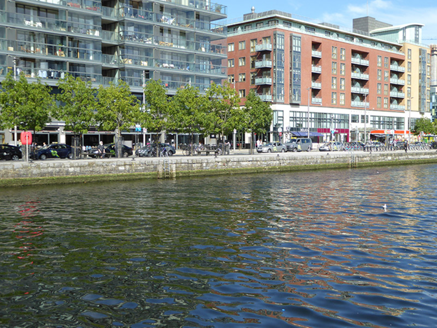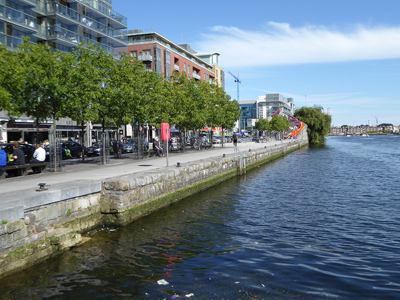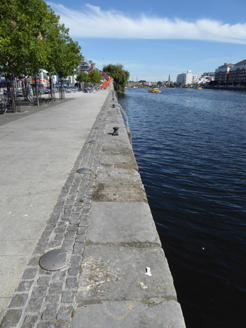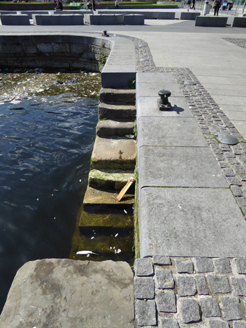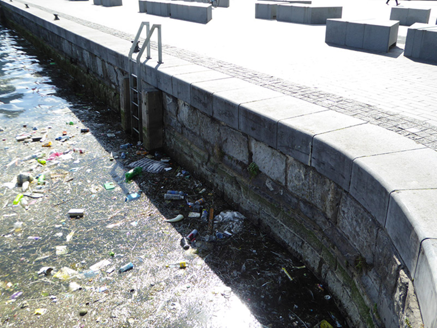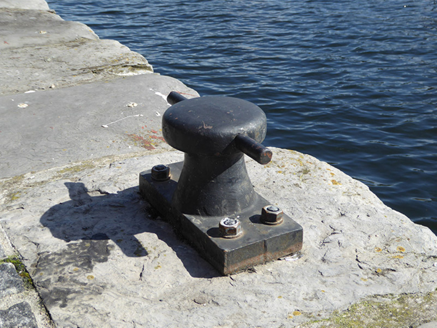Survey Data
Reg No
50100342
Rating
Regional
Categories of Special Interest
Historical, Social, Technical
Original Use
Quay/wharf
In Use As
Quay/wharf
Date
1780 - 1800
Coordinates
317667, 234049
Date Recorded
29/07/2016
Date Updated
--/--/--
Description
Quayside, built c. 1790, lining north side of Grand Canal Docks. Coursed and dressed calp limestone walls with matching coping having rounded upper edge; recessed section having in-built granite steps descending to water. Quay hard standings replaced in recent years, having copings lined to north with cobble-trim and recent masonry paving. Cast-iron mooring posts affixed to coping stones, and modern lighting affixed to recent cobbles. Forms north part of deep-water Grand Canal Docks at south side of River Liffey, to southwest of where it meets River Dodder. Docks enclosed by adjoining Grand Canal Quay to west and Charlotte Quay to east, with McCartney Bridge spanning south end of docks. Recent large-scale developments lining quay; some industrial buildings remaining, including former industrial structures to northeast and northwest.
Appraisal
Hanover Quay forms the north boundary of the extensive L-shaped docks that terminated the Grand Canal, next to the mouth of the River Dodder. Constructed between 1757 and 1796, the Grand and Royal canals encircle Dublin city centre and provide navigable waterway connections between the Liffey and Shannon rivers. Despite construction of these deep-water docks, ships continued to berth on the Liffey quays and, with the decline of the Grand Canal, the associated docks followed suit. Despite alterations to the adjacent quays, the calp limestone walls are retained, in addition to other salient features. The scale and quality of construction of the quay and docks are testament to the ambitions of the Grand Canal Company. It forms an important part of the city's industrial heritage and is an important reminder of the heyday of the canal era, prior to its demise following the arrival of the railway. The district is now largely redeveloped, focusing on the Grand Canal Theatre.
